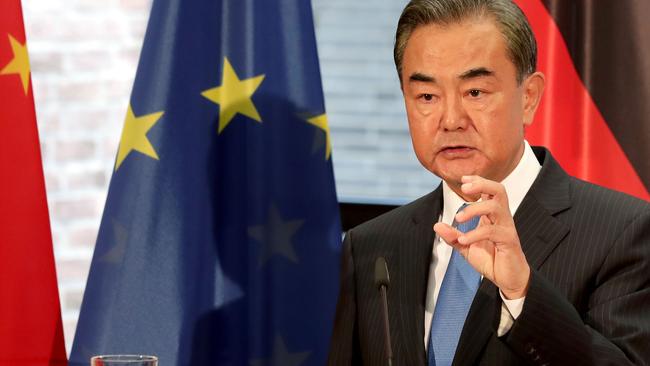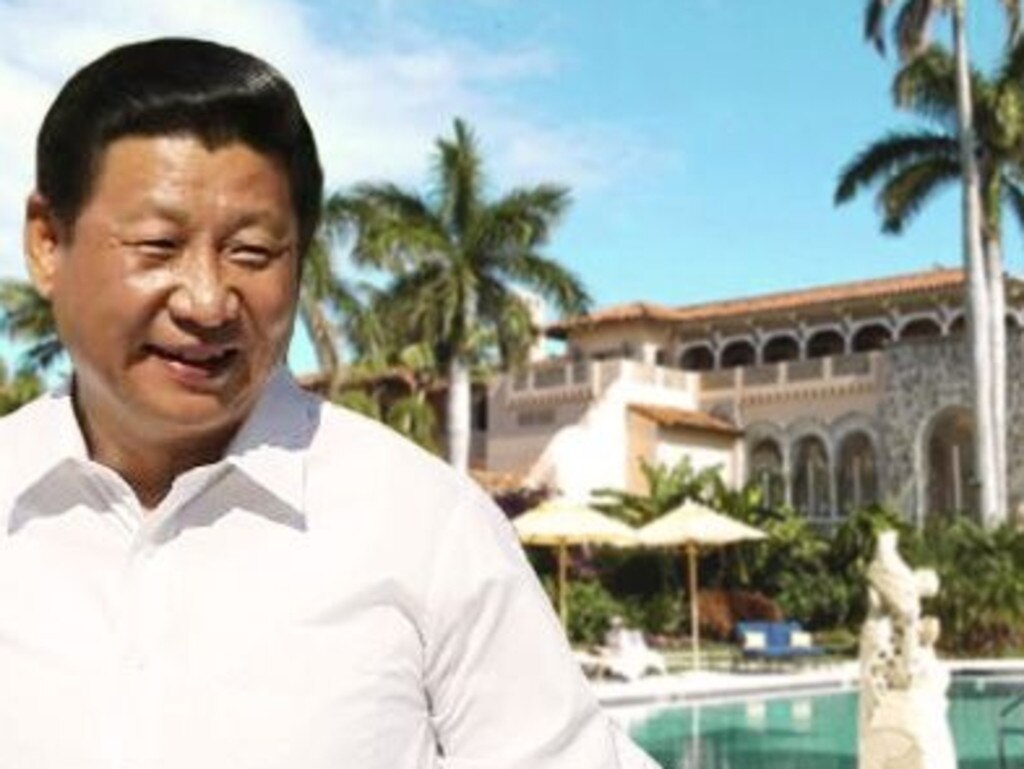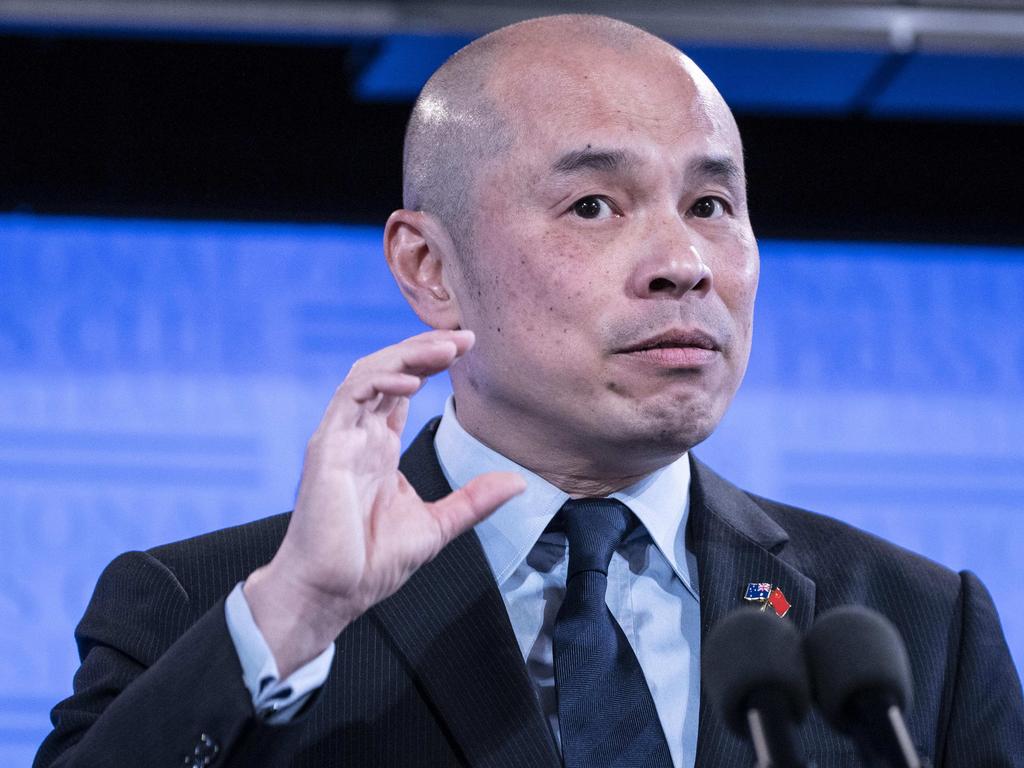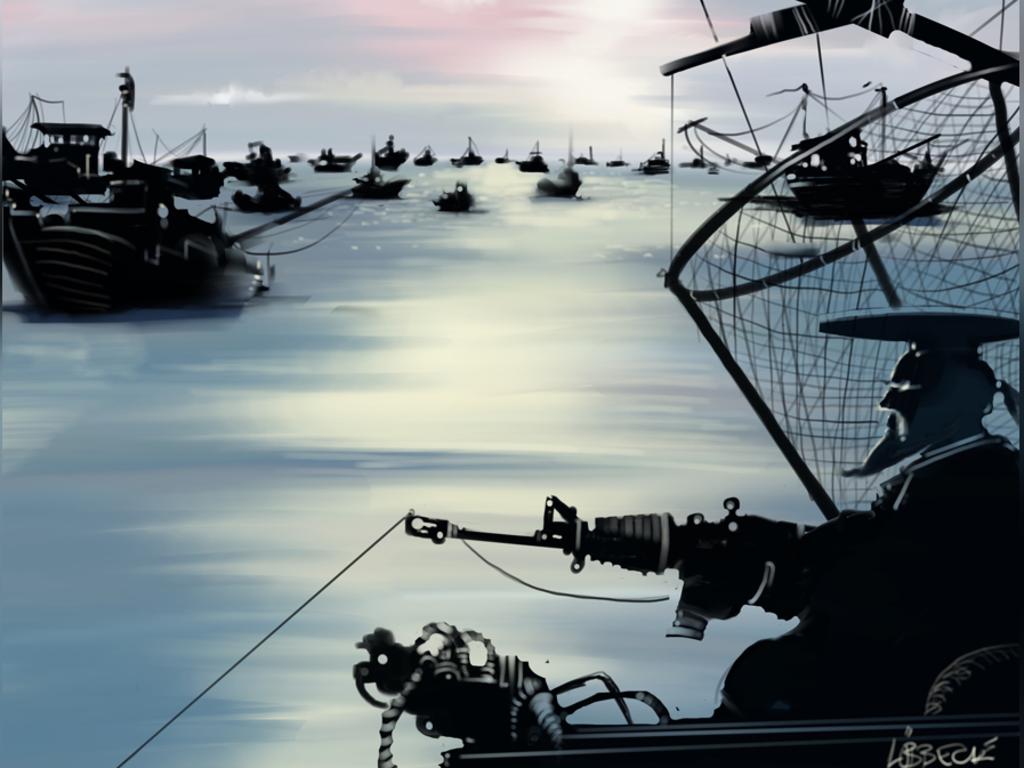China charm offensive shot down in flames
A Chinese diplomatic offensive to improve ties with Europe and counter US influence has failed to deliver results.

A Chinese diplomatic offensive to improve ties with Europe and counter US influence has failed to deliver results, with EU leaders openly critical.
On the last leg of a two-week fence-mending tour of the continent, Chinese Foreign Minister Wang Yi stopped in Germany on Tuesday (Wednesday AEST), having met with scepticism even in friendlier countries.
China is eager to pre-empt the formation of a US-Europe front against Beijing ahead of an US election that is unlikely to deliver a friendlier administration, regardless of its outcome, foreign policy experts said.
Mr Wang’s visit, the first to Europe since the start of the coronavirus pandemic, followed two tours this year by US Secretary of State Mike Pompeo, who has urged Europe to confront China politically and economically.
So far, Europe has avoided taking sides, but strains have begun to show following claims that China covered up the initial COVID-19 outbreak and could be using Huawei’s telecom equipment to spy on data transfers in the West. Beijing’s curtailing of rights in Hong Kong, its reported mass internment of Muslim minorities and threats against Taiwan have also contributed to the chill.
Mr Wang has visited Italy, Norway, The Netherlands, France and Germany, and later this week, Yang Jiechi, China’s top diplomat, will go to Spain and Greece.
China’s goal, analysts said, was to prevent the emergence of an anti-China consensus in the European Union and keep the continent on the fence in the US-China standoff.
“Europe is now a contested ground,” said Didi Kirsten Tatlow, senior fellow with the German Council on Foreign Relations, a think tank. “Beijing wants to prevent any economic decoupling and to remain the factory of the world.”
Hong Kong democracy activists followed Mr Wang throughout his trip, linking up with local politicians to condemn China’s crackdown on the autonomous territory. Some of his hosts, including Italian Foreign Minister Luigi di Maio, publicly criticised Beijing’s policy. Mr di Maio, whose country has signed a memorandum of understanding to join China’s Belt and Road infrastructure initiative, said Hong Kong’s autonomy wasn’t debatable.
French President Emmanuel Macron gave a speech immediately after Mr Wang’s visit, in which he said that he would rather European telecoms built 5G networks than Huawei.
In Germany, Mr Wang caused outrage by threatening Czech Senate president Milos Vystrcil for visiting Taiwan, which China considers its territory. Mr Vystrcil would “pay a heavy price for his shortsighted behaviour”, Mr Wang was quoted as saying.
At a joint press conference with Mr Wang on Tuesday, German Foreign Minister Heiko Maas pushed back, saying “in the European Union we deal with our international partners together and with respect, and threats do not fit into that approach”.
China has been Germany’s largest trading partner for years, and Chancellor Angela Merkel has had a good relationship with Beijing, generally refraining from publicly criticising it.
At the press conference, Mr Wang said efforts by the Trump administration to drive a wedge between the West and China would only damage the global economy. “Today the choice is confrontation or co-operation, multilateralism or unilateralism, openness or isolation,” he said. “China and Germany must open to each other more.”
During Mr Wang’s visit, the EU’s chief diplomat Josep Borrell published an opinion piece describing China as a new empire and criticising its lopsided economic relation with Europe.
The Wall Street Journal







To join the conversation, please log in. Don't have an account? Register
Join the conversation, you are commenting as Logout